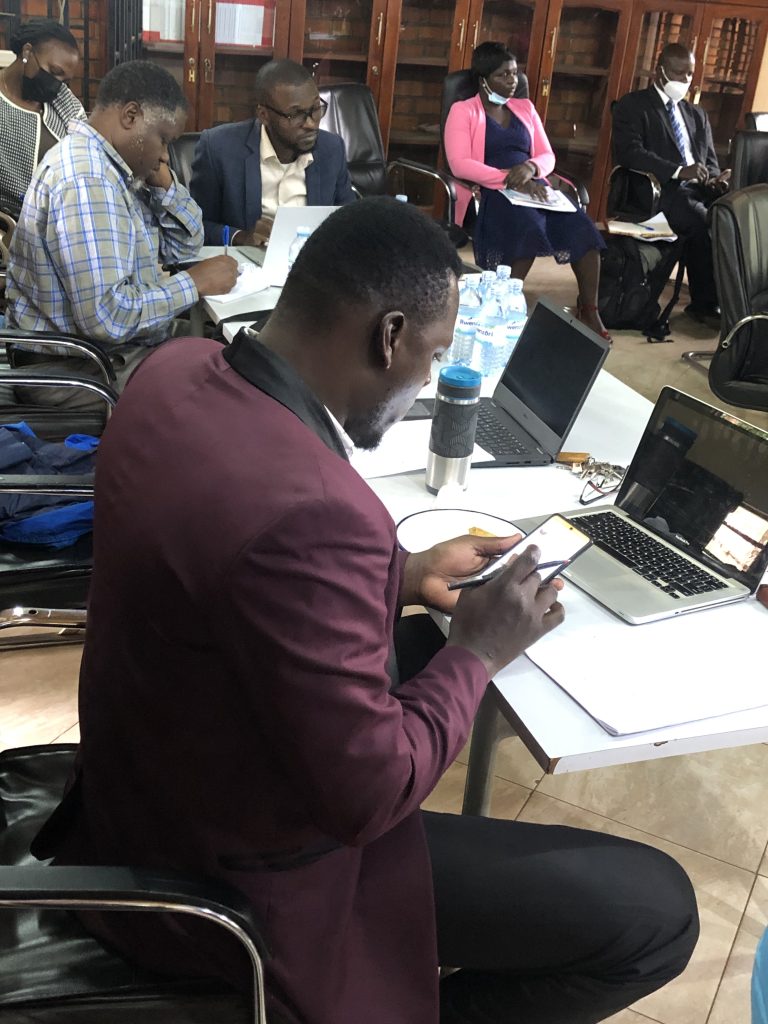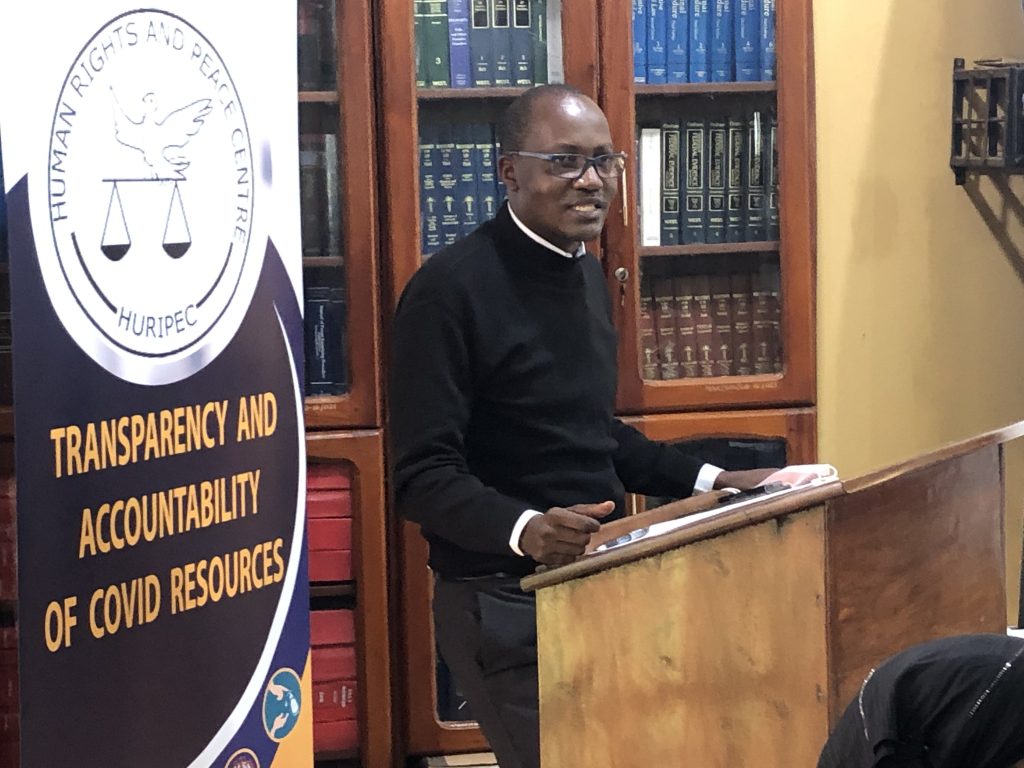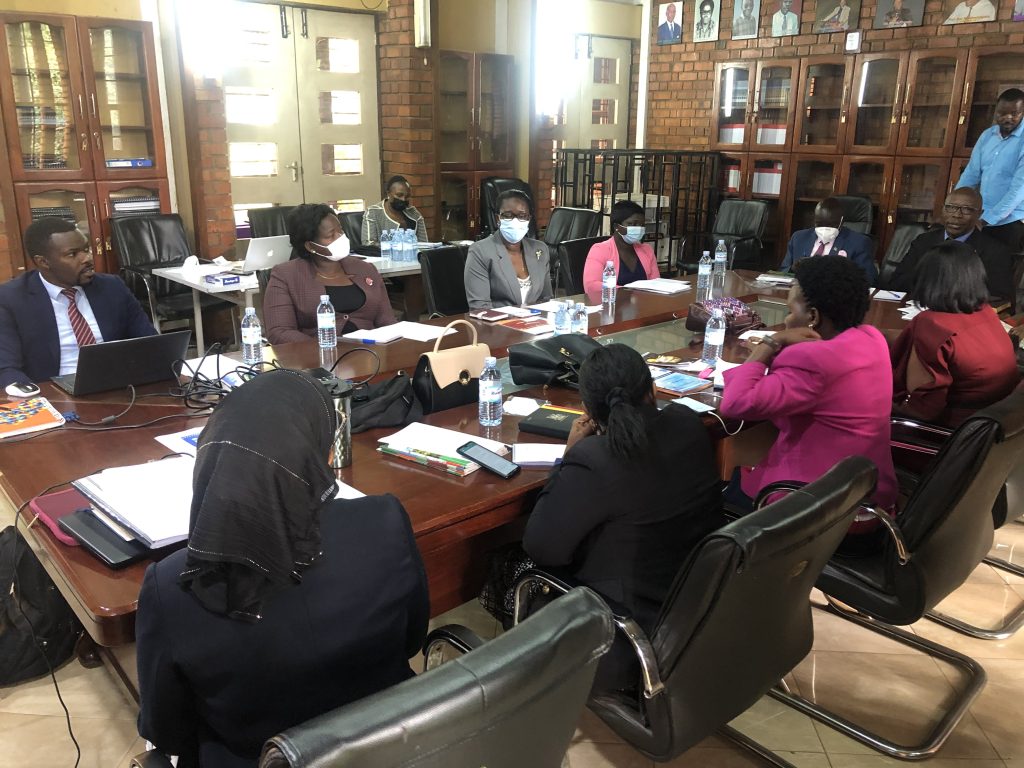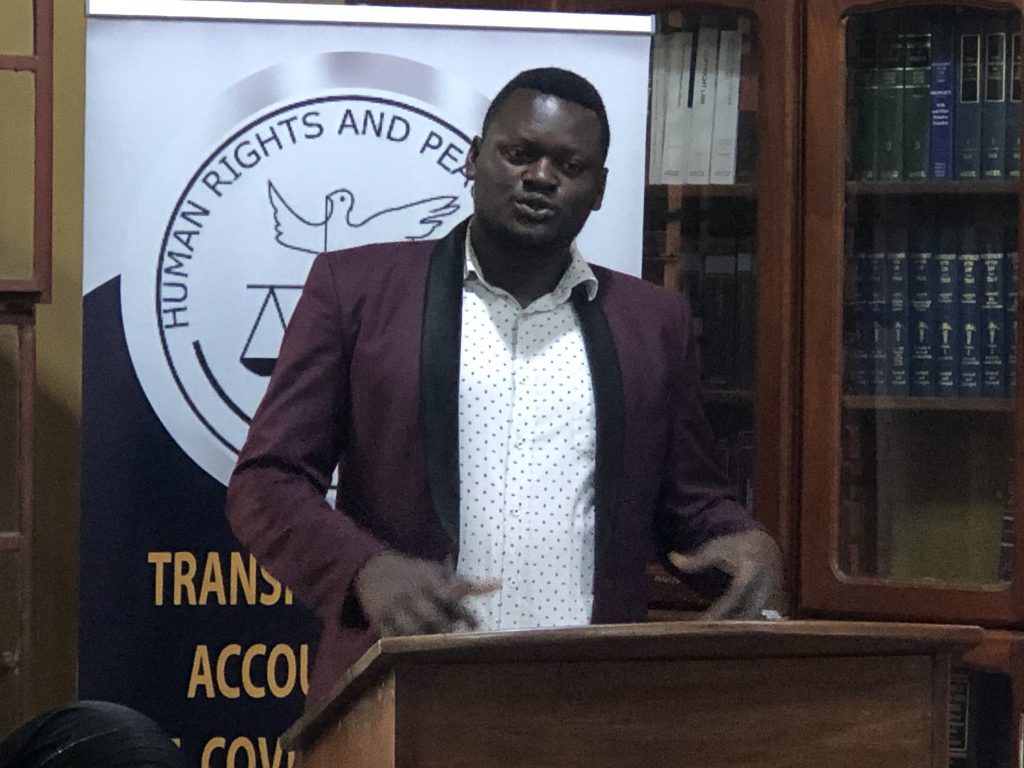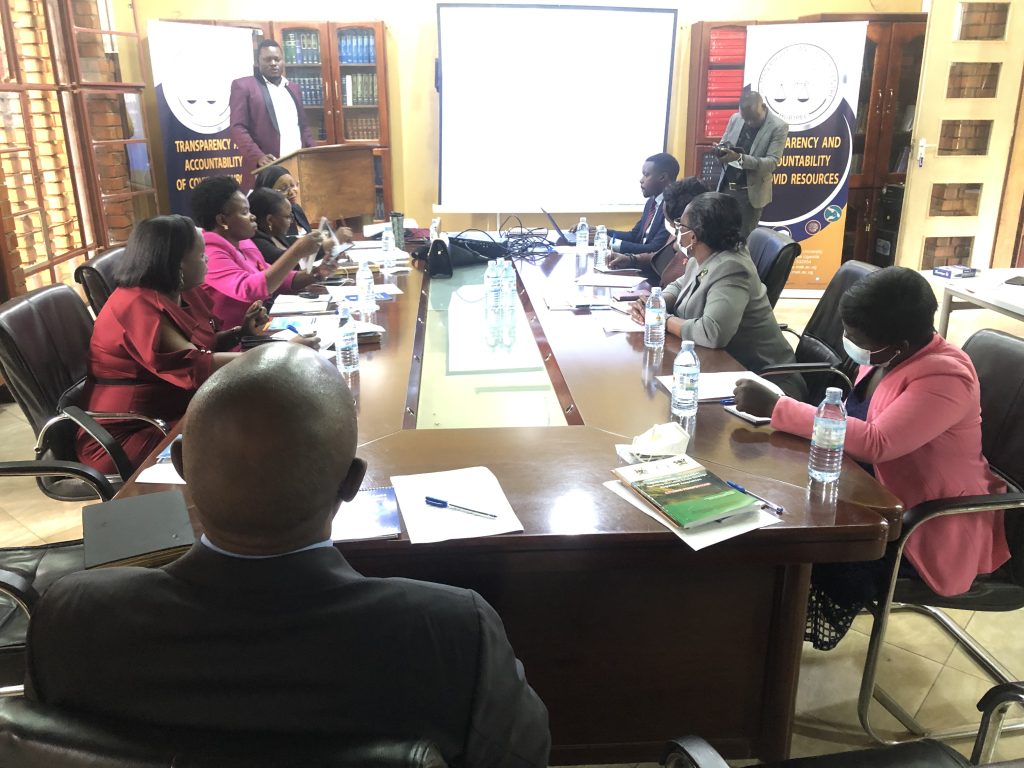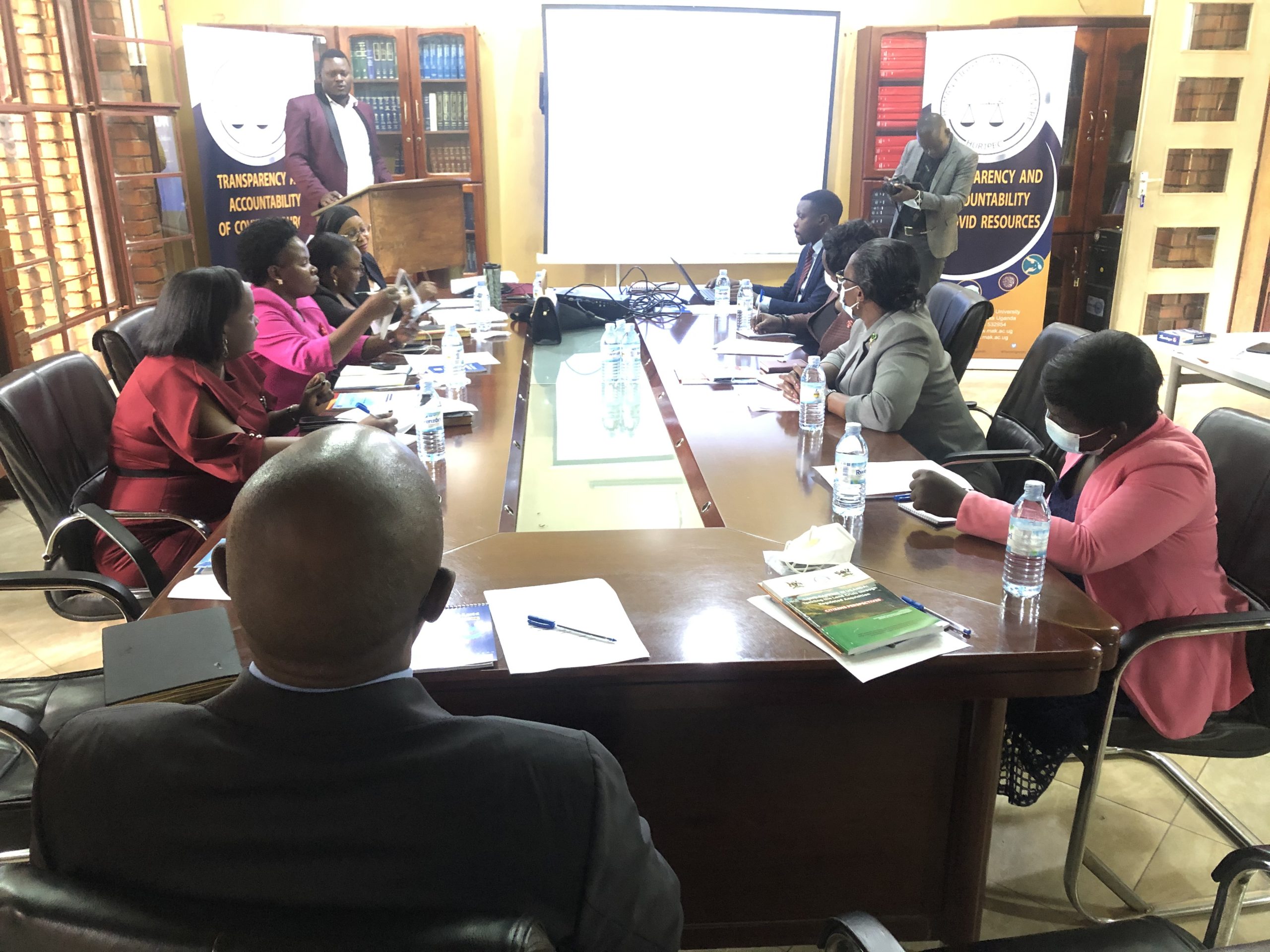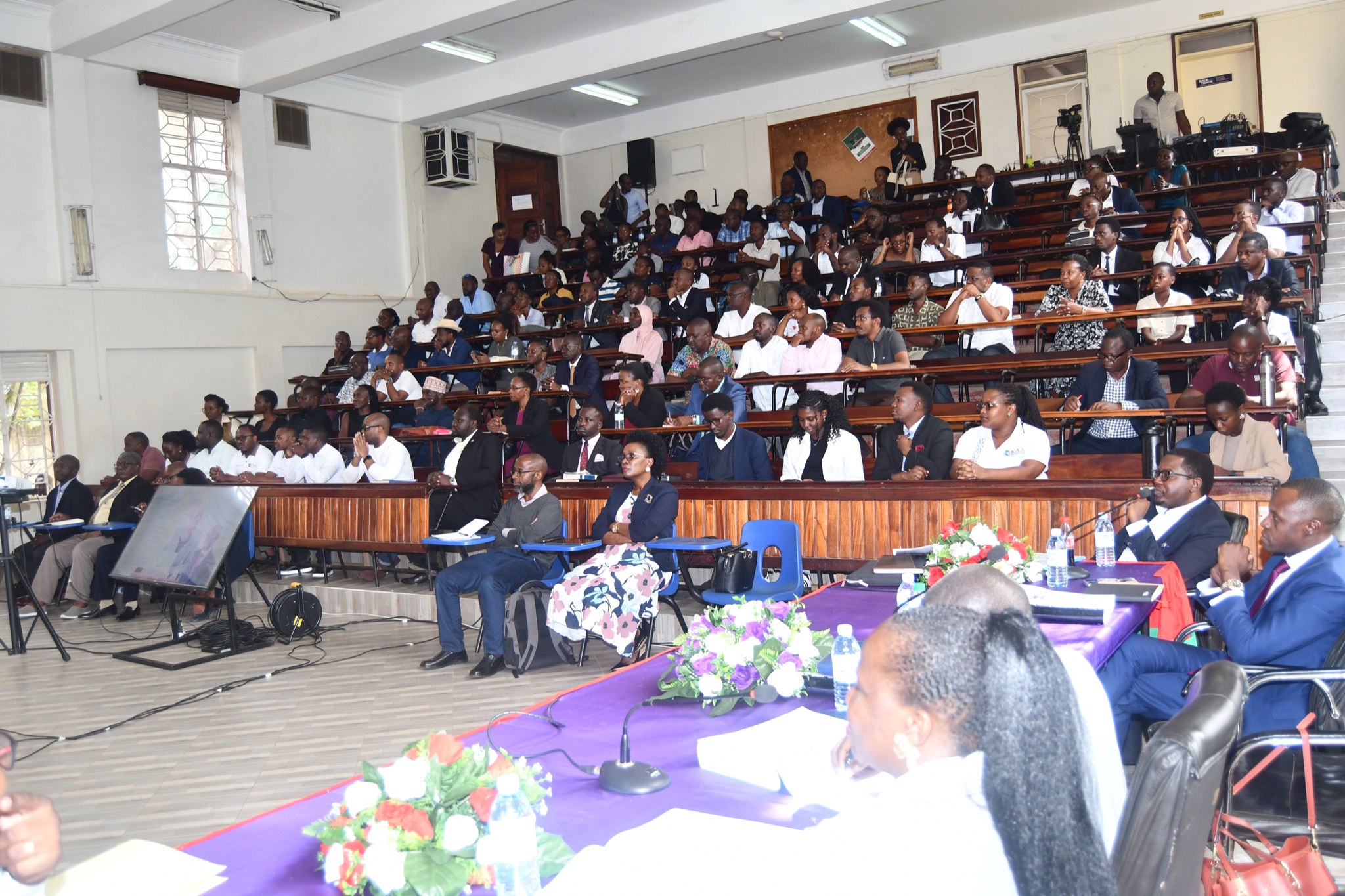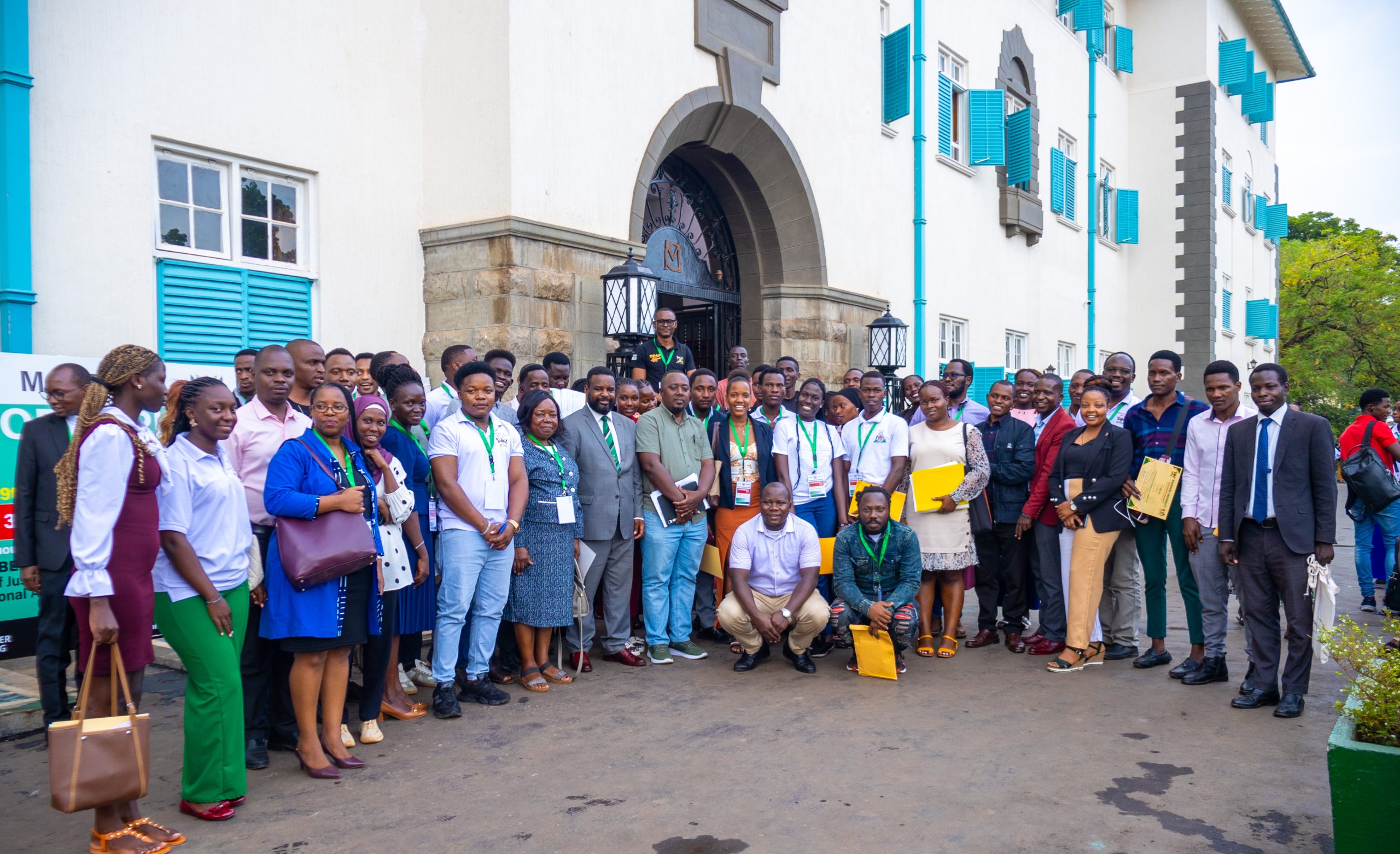HURIPEC Engages MPs on Budgeting Crisis Funds
The Human Rights and Peace Centre (HURIPEC) at the School of Law (SoL) engaged Members of Parliament (MPs) on budgeting crisis funds at a Budget Review Platform Meeting held on the 8th June 2022 at SoL. This meeting is under their research initiative Transparency and Accountability of Covid-19 Resources in Uganda (TARCO). The Budget Review Platform themed, “Budget Crisis Funds: Covid19 Funding and Expenditures” was launched on the 1st June 2022 at the Parliament Buildings.
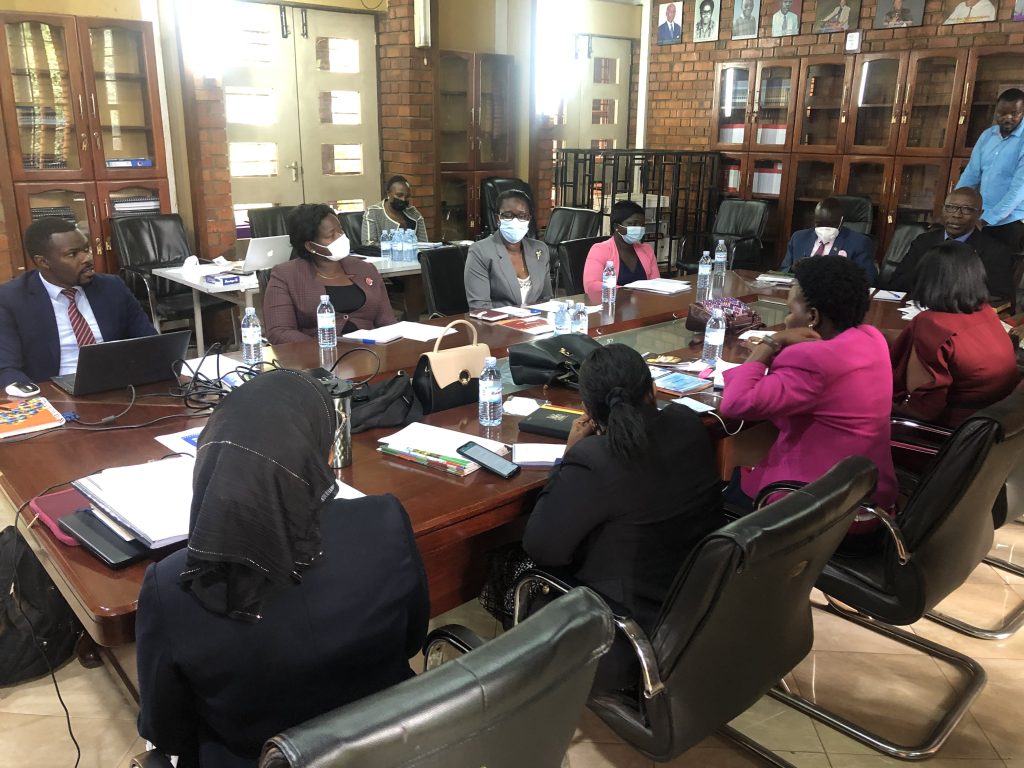
The aim of the platform is to enhance capacity of MPs and relevant stakeholders to undertake meaningful reviews, analysis and audits of Covid19 related budgets at all levels of governance. This engagement is part of an on-going partnership between HURIPEC and Parliament on contributing to strengthening the Institution of Parliament to effectively perform its oversight functions.
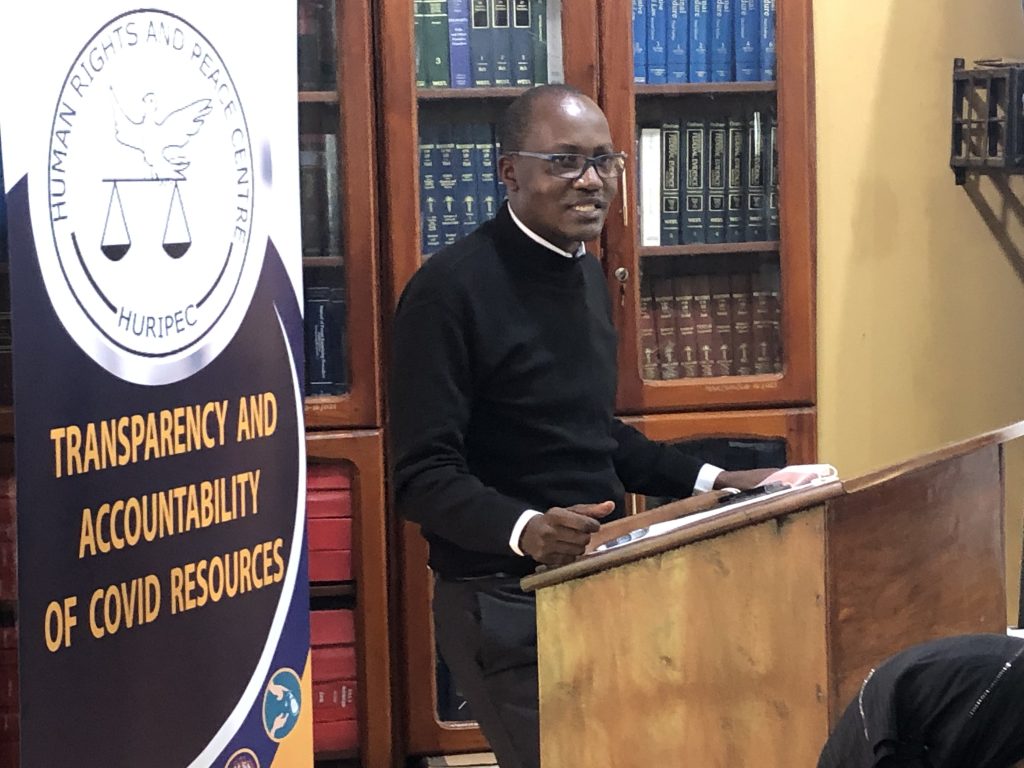
The meeting held at Parliament was facilitated by Professor Joe Oloka-Onyango, SoL and Hon. Winfred Kiiza, former Leader of Opposition in Parliament. Mr. Mitchell Ainebyoona from the Civil Society Budget Advocacy Group facilitated the meeting held at SoL.
The Speaker, Deputy Speaker, Leader of Opposition and MPs were invited to the meetings. The participating MPs were drawn from Parliamentary Committees including: Public Accounts Committee (PAC); Committee on Commissions, Statutory Authorities and State Enterprises (COSASE); The Budget Committee; The Committee on Health; The Committee on Legal and Parliamentary Affairs; The Committee on Information, Communication Technology and National Guidance; The Committee on Rules, Privileges and Discipline; The Committee on National Economy; and The Committee on Trade, Tourism and Industry. Participating MPs will serve as champions of transparency and accountability amongst their peers. Ms. Jane Seruwagi, Executive Director – Southern and Eastern Africa Trade Information and Negotiations Institute (SEATINI) Uganda attended the meeting.
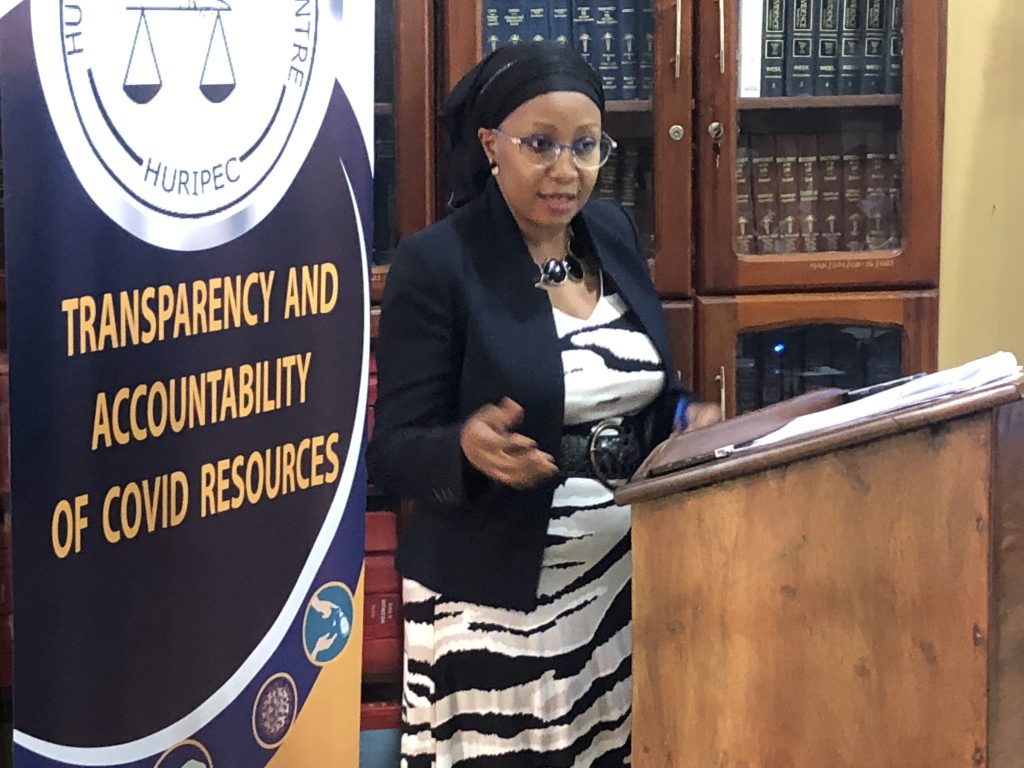
Welcoming participants to the meeting held at SoL, Jackson Odong – Research Associate, HURIPEC explained that at this meeting it will be possible to interrogate, “what it means to develop budgets in times of crisis. Stakeholders are able to use the Covid19 lenses to understand how best to budget for challenges and crises”. It may not be possible to engage all 500 MPs but it is our hope that the members we work with through this initiative will serve as champions to further advise the August House to take-up our proposals.
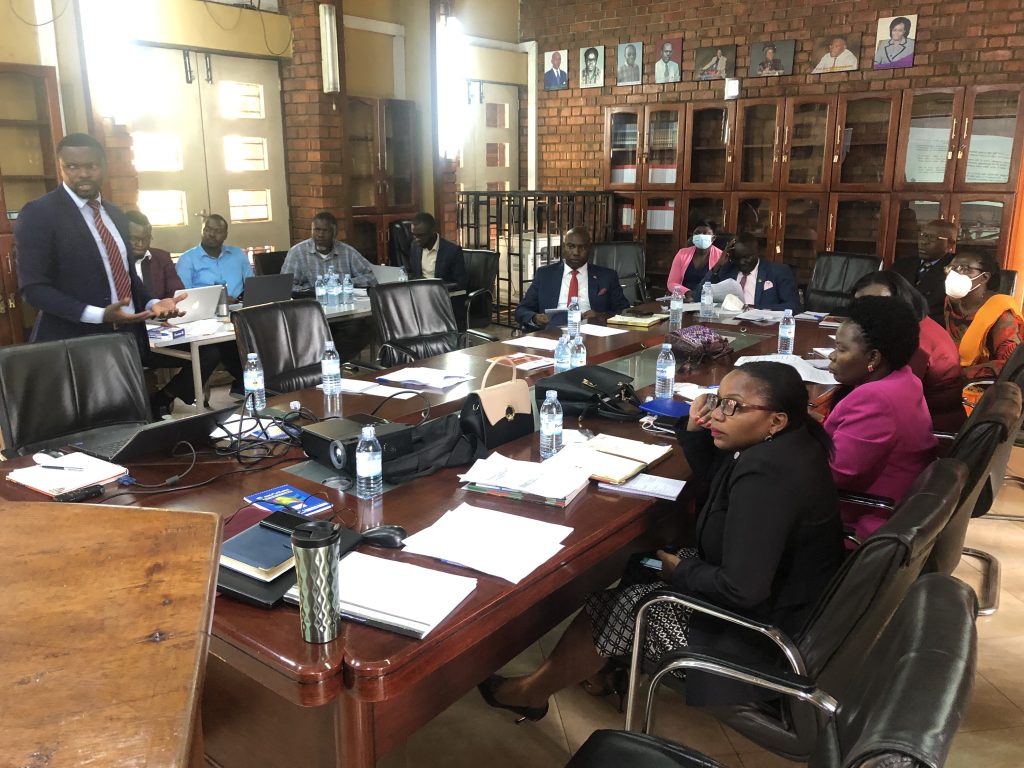
Dr. Zahara Nampewo, Director – HURIPEC welcomed the MPs to HURIPEC, SoL and Makerere University. ‘Many of you have walked through the Makerere Gates as students or visitors but its humbling that you are at SoL today. Thank you for making the time to join us despite your busy schedules’ she added. Dr. Nampewo underlined the importance of the meeting, noting that the minimum resources available to the nation have to be best used for benefit of the Uganda population. She further said having signed various international conventions, it is the duty of government to protect its citizens from expensive medical services including vaccines.
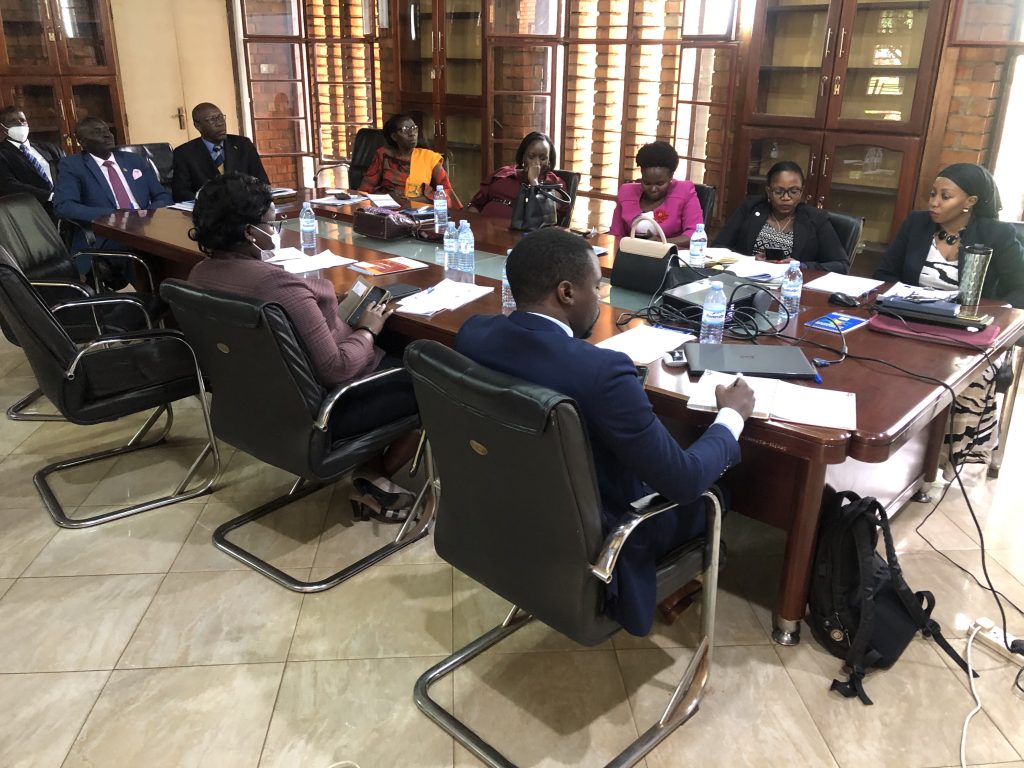
In his presentation Mr. Mitchell Ainebyoona, Economist at CSBAG explained that governments prepare budgets to allocate resources for provision of services to the people; distribution of income and wealth in an attempt to redress inequalities in wealth distribution; and stabilization of the economy. Mr. Ainebyoona added that budget analysis can refer to carrying out a comprehensive and systematic evaluation of the budget; examining to what extent revenue and expenditure of a budget met the set objectives. I reference to the Covid19 expenditure by Government of Uganda, he raised the following observations:
- Ineffectiveness of the economic stimulus package: In mid-August 2020, the government capitalized Uganda Development Bank (UDB) by additional UGX.455 billion, earmarked from IMF loan, as a “stimulus package.” By its design, the goal of a stimulus package was to reinvigorate the economy, prevent or reverse a recession through boosting employment and spending. The stimulus package predominantly focused on the Uganda Development Bank (UDB) which, due to its high collateral requirement (100 million minimum), did not reach the Micro, Small and Medium Enterprises (MSMEs) that were most detrimentally impacted by the pandemic.
- Predominantly focusing on stocking reserves: In May 2020, the IMF extended a US$491.5 million interest-free loan as emergency assistance to Uganda under the Rapid Credit Facility. Out of the US$491.5 million, 70% (US$344.05 million) was allocated to Bank of Uganda to boost the country’s stock of foreign exchange reserves. The remainder, 30% (US$147.45million), was designated for capitalization of the Uganda Development Bank (UDB) to provide private credit to private companies. While reserves are critical, this percentage is high at a time when liquidity was urgently needed. By stocking an additional US$344.05 million in form of reserves to cover imports, Bank of Uganda denied the private actors the much-needed liquidity to support their business.
- Limited impact on education: Uganda COVID-19 Emergency Education Response Project, which was largely supported by the World Bank, exacerbated exclusion in access to basic education, disproportionately affecting learners with disabilities and those in rural areas, particularly girls. Although the project intended to support over 14 million learners, by November 2020, only 3.1 million learners had been allegedly served. Home study materials were not distributed in time while districts like Buikwe did not get the materials, at all. Additionally, the model of teaching through radio stations, televisions, and online platforms exacerbated the education exclusion for both students with learning disabilities and those from poor households who had no access to radios, televisions, and the internet. Over 181,809 learners with disabilities in both primary and secondary schools did not equally benefit from continued learning due to lack of assistive devices.
- Creation of Funding gap for critical health services: The Contingency Emergency Response Component triggered under existing projects caused a financing gap to affect people who rely on the project to access critical health services. The US$15 million loan to Uganda by the World Bank triggered from the existing Reproductive, Maternal, and Child Health Services improvement project, for instance, created a funding gap on the maternal health services in the country, affecting patients, particularly pregnant and lactating women, who relied on the project for free and affordable health services.
- Accountability Issues in management of Covid19 funds: The funds that were planned for but were not utilized and funds for some activities were not accounted for. In some instances, there was failure to quantify and implement planned activities.
Mr. Ainebyoona highlighted the following as key lessons for consideration:
- Abuse of appropriation process: We notice that due to poor planning, MDAs continuously seek for supplementary budget for items that could have been avoided.
- Limited prioritize economic recovery program: Some of the proposed supplementary expenditures which are recurrent in nature do not significantly contribute to the economic recovery agenda. As such Parliament needs to either differ these expenditures or explicitly strike it off the list.
- Qualification for a supplementary Budget: We notice that there is no clear criterion on which MDAs qualifies for a supplementary. For example, it is clear that there are MDAs that have that have consistently appeared on almost every schedule annually which shows poor planning and prioritization.
- Weak justification for Supplementary Budgets: We are concerned that some of the proposed supplementary requests are accompanied with inadequate details and justifications. Inadequate information limits Parliament’s scrutiny to establish the value for money of such items to be qualified for the supplementary budget.
He advised that going forward its important to note that “persistence supplementary budgeting erodes public confidence in the budget process and puts the credibility of the budget into question. This situation signifies poor planning since some of these expenditures are foreseeable, avoidable, and absorbable. Therefore, Parliament needs to exercise its oversight role in ensuring that MDAs don’t abuse the supplementary budgeting process by encouraging them to stay within the guidelines of the Public Financial Management (PFM) regulations”.
The meeting was closed by The Principal SoL, Professor Christopher Mbazira. In his remarks, he welcomed the participants to the School thanking the legislators for making the time from their busy schedules. He thanked the HURIPEC team led by Dr. Zahara Nampewo for organising the meeting. Professor Mbazira highlighted the meeting aligns with the mission of the SoL of imparting quality legal knowledge and skills within an inter-disciplinary framework inspired by legal scholarship. The Principal underlined that this engagement is more important as Makerere celebrates 100 years guided by the theme, ‘leveraging 100 years of excellence in building a transformed society’; this is an example of hoe Makerere can use its human capital and knowledge to contribute to policy. “It is our hope that this engagement will lead to more engagements and knowledge sharing with Parliament because SoL has a lot to offer”, Professor Mbazira said.



